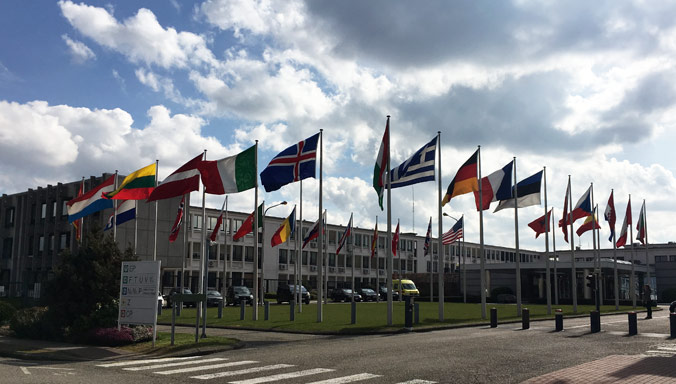Statement by the North Atlantic Council on the use of a nerve agent in Salisbury
The UK briefed the North Atlantic Council today on the use of a nerve agent in Salisbury on 4 March.

The UK confirmed the use of a military-grade nerve agent of a type developed by Russia and briefed Allies that it was highly likely that Russia was responsible. The UK also confirmed that this was an indiscriminate and reckless attack against the United Kingdom, putting the lives of innocent civilians at risk.
Allies expressed deep concern at the first offensive use of a nerve agent on Alliance territory since NATO’s foundation. Allies expressed solidarity with the UK, offered their support in the conduct of the ongoing investigation, and called on Russia to address the UK’s questions including providing full and complete disclosure of the Novichok programme to the Organisation for the Prohibition of Chemical Weapons. Allies agreed that the attack was a clear breach of international norms and agreements.
Since its entry into force in 1997, the Chemical Weapons Convention has become one of the pillars of the global non-proliferation regime. The Convention prohibits the development, transfer and use of chemical weapons. States Parties to the Convention take on a duty to uphold and enforce its fundamental tenets. States Parties commit not to develop, produce or otherwise acquire, stockpile or retain chemical weapons, nor to transfer, directly or indirectly, chemical weapons to anyone. States Parties also undertake not to engage in any military preparations to use chemical weapons, nor to commit to assist, encourage or induce anyone to engage in prohibited activity.
NATO has repeatedly condemned the use of chemical weapons in Syria and called on those responsible to be held to account. NATO regards any use of chemical weapons as a threat to international peace and security.
